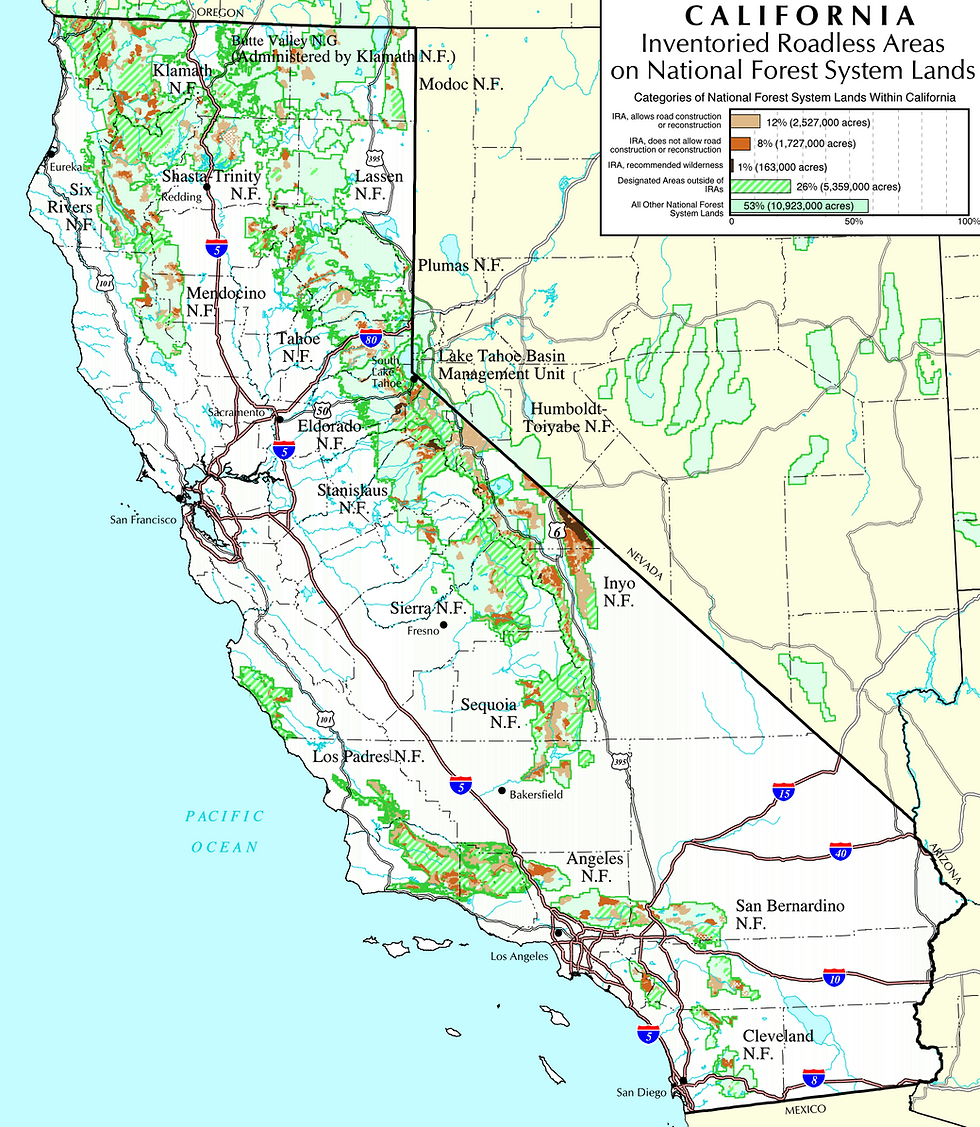Action Alert: Don't Give PG&E More Power! Oppose SB 396!
- Matt Simmons

- Jun 1, 2022
- 4 min read
Updated: Jun 6, 2022

Recently, many landowners on the North Coast have experienced Pacific Gas & Electric’s (PG&E) Enhanced Vegetation Management. In fact, PG&E has been logging wide swaths along their utility power lines on private, state, and federal lands. PG&E claims that clearing trees near their power lines is necessary to prevent wildfires. But landowners feel that PG&E has far too much discretion in deciding whether to remove trees and frequently takes trees that were in no danger of coming into contact with a line.
It is understandable that many folks have been taken in by the idea that trees are the cause of wildfires and therefore must be cut down, because illegally untrimmed branches hitting bare power lines were directly implicated in the 2017 Napa and Sonoma fires that claimed 46 lives, scorched 245,000 acres, and incinerated 8,900 homes. Fulfilling the basic Vegetation Management (VM) requirement for distribution lines of maintaining a 4-foot radial trim around distribution lines may well have prevented that disaster, but failed VM only accounts for about 25 to 35% of ignition sources. Other ignition sources include equipment (failing transformers, expulsion fuses, etc.), animals, vehicles and even balloons. It is in reality the vulnerability of antiquated bare power lines and degraded transmission systems that have caused 100% of utility-associated wildfires.
Other electric utilities in California, like Southern California Edison and San Diego Gas and Electric have focused on upgrading their infrastructure in order to prevent wildfires. This includes upgrading their transmission lines with reinforced, triple-insulated conductor (wire), new fire-resistant poles, modernized support equipment, and computerized circuit breaker protection. Because of these upgrades, Southern California Edison and San Diego Gas and Electric have both significantly reduced the number of wildfires caused by their transmission lines. Unfortunately, PG&E has instead decided to focus on Enhanced Vegetation Management aka tree removal; a flawed strategy that is harming the environment and failing to keep us safe.
Now, a proposed bill would give PG&E even more power to remove trees without landowner consent. SB 396 (Dahle) would give electrical utility companies “full discretion” to enter private property without permission of the landowner or homeowner; trim and cut trees, including the felling of live trees, with no limit on the number or size of the trees cut; and then leave the downed trees, limbs, and debris for the owner to deal with. Under SB 396, if the landowner requests that the felled trees be removed, the electrical corporation is under no time constraint to do so and can ignore the request entirely if the electrical corporation considers it unsafe or impractical to clean up the downed trees, wood, and debris. The bill gives landowners no authority to protect their property interests except for “an opportunity to be heard.”
By allowing electrical corporation contractors to leave behind downed trees, wood, and debris, the bill not only makes clean up the responsibility of the landowner, it also increases the fire risk for the landowner and the community by increasing the amount of flammable debris on the forest floor.
The Bill gives no real opportunity for landowners to prevent or appeal a decision by a contractor to remove trees on their property. The utility need only make a “good faith” effort to even let the landowner know that they will be logging trees on their property. The bill gives landowners no authority to protect their property interests except for “an opportunity to be heard.” Our typical environmental laws, like CEQA and NEPA, are also powerless to reign in these actions because vegetation management is an exempt activity.
In sum, SB 396 gives electrical corporations and their contractors unprecedented authority to ignore environmental considerations, the rights of private landowners and homeowners, and the public interest, even when doing so increases the fire risk for landowners and communities.
Take Action:
It’s not too late to stop this bill! EPIC members are encouraged to state their opposition to SB 396 to their State and Local legislators. To look up your legislator’s contact info visit https://antr.assembly.ca.gov/membersstaff. You can also submit a position letter opposing the bill here https://antr.assembly.ca.gov/ .
Monday, June 6, at 2:30pm is the Committee Hearing:
Call in instructions:
Committee Hearings Monday, June 6, 2022 Natural Resources LUZ RIVAS, Chair 2:30 p.m. - State Capitol, Room 447 ( Listen to this hearing ) Call-in Number: (877) 692-8957 (PIN: 1315447) Committees: Natural Resources Show Details
• When you call in, you will be placed in a “waiting room” where you’ll be muted but can listen to the committee hearing. • When the committee moves to public comments on SB 396 , a moderator will ask for anyone wishing to testify in support of the bill to press 1-0. Press 1-0 once when you are prompted by the moderator. The moderator will similarly prompt those waiting in opposition later—be sure to listen for “support” or “opposition” and DO NOT press 1-0 until the proper position has been asked for. (Note: if you press 1-0 a second time, you’re automatically removed from the queue and you will not be called to testify.) • When you press 1-0 on your phone, an operator will assign you a line number and you’ll be placed in the queue for identification. Remember your line number: and write it down... the moderator will call out your number when it’s your turn to testify. They do not call them in order. • Once your line is opened by the operator, you can say the following: “I’m [name] from [organization or community] and I strongly Oppose SB 396.
Note: unlike other public comments, they do not allow supporters to provide reasons for their support. Please limit your comment to a quick message of oppose , like the statement above.





Comments